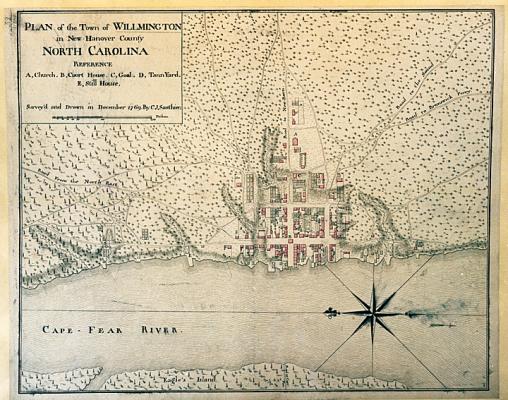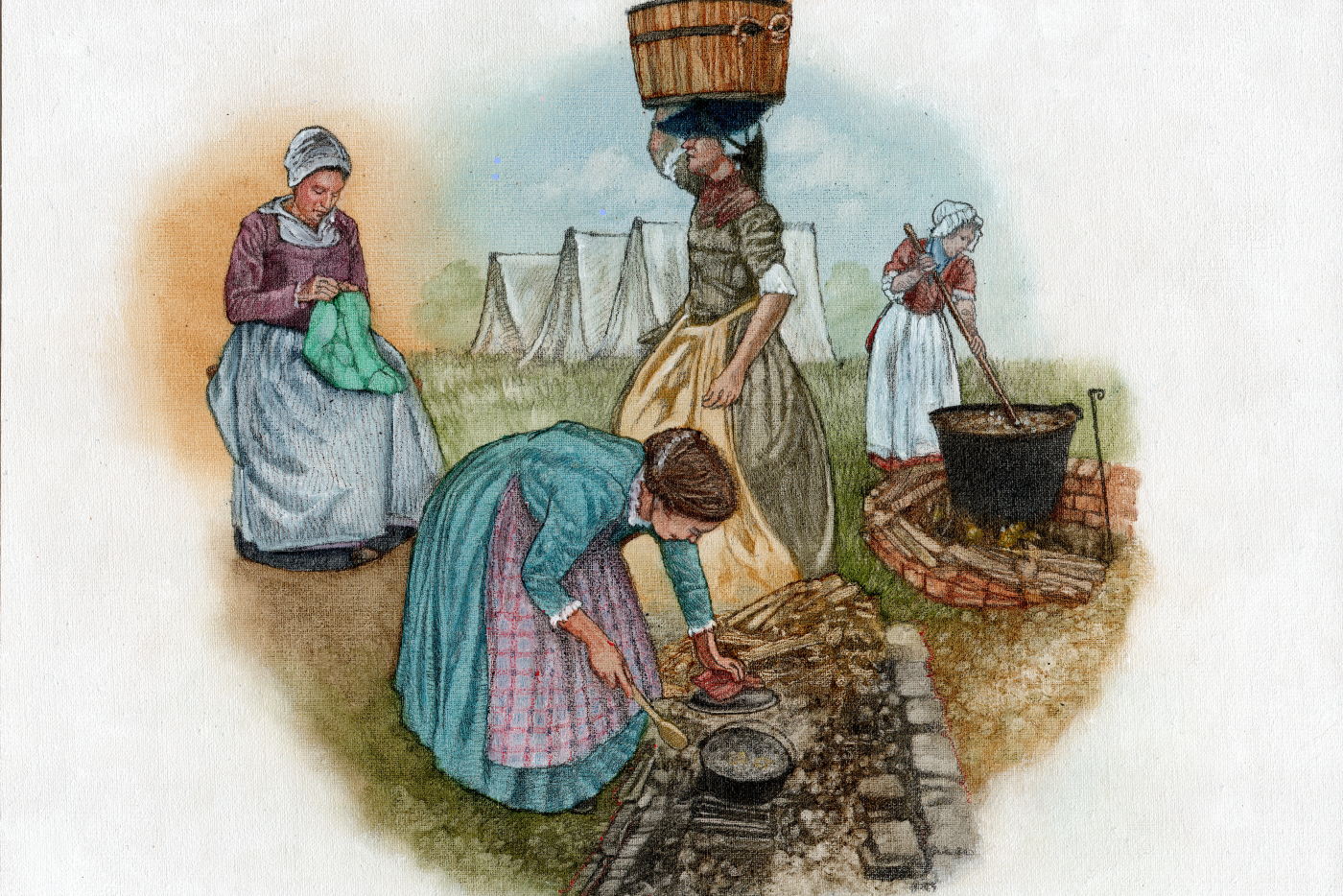Author: Lori Townsend; Research Historian, Research and Publications
Following the Boston Tea Party of 1773, British Parliament passed a series of acts that resulted in the closure of the Boston Port and forced residents to quarter military troops. As news of the Intolerable Acts spread, outraged colonists implemented non-importation agreements against British goods, especially East India Tea. In North Carolina, the Provincial Congress convened in August 1774 and vowed to establish a trade boycott, declaring, "we will not use nor suffer East India Tea to be used in our families....and that we will consider all persons in this province not complying with this resolve to be enemies to their Country. " [1]
Like other colonial towns, Wilmington residents took action. Although the exact date is unknown, evidence suggests that a group of women in Wilmington publicly protested British goods by lining up and burning their tea supply in the streets. Janet Schaw, visiting from Scotland at the time, documented the event in her journal. Unfortunately, she did not date the entry. During her visit to Wilmington sometime in the spring of 1775, Schaw wrote in a letter to an unknown friend,
"The Ladies have burnt their tea in a solemn procession, but they had delayed however till the sacrifice was not very considerable, as I do not think anyone offered above a quarter of a pound."
The editors at Yale University, who originally published Schaw's journal, suggest the reference may be to the Edenton tea party, but note there are no sources to indicate that tea was burned during this event. [2] Further evidence gathered from Schaw’s journal indicates that the North Carolina Provincial Congress trade boycott is in effect, and the letter reads as though written from the perspective of someone who witnessed the event. [3]

Caption: Plan of the Town of Wilmington, 1769, by C. J. Sauthier. Original in the British Library, London. This copy from General Negative Collection, Non-Textual Materials Unit, North Carolina State Archives, Raleigh, NC. Image retrieved from the State Archives of NC Flickr Account.
While the women of Edenton who resolved to abstain from tea received backlash from British newspapers, research has yet to identify additional sources to help us understand the public's response to the Wilmington women's demonstration or their individual motivations. However, a Wilmington correspondence letter published in the South Carolina Gazette provides a glimpse when in the author's view, "it would be an injustice to the ladies, not to add, that they have entirely declined the use of tea. Such a sacrifice by the fair sex, should inspire ours with that firmness and public virtue...." [4] The letter demonstrates public actions taken by women could also be celebrated when deemed appropriate and patriotic.
Sources:
William L. Saunders (ed.) The Colonial Records of North Carolina, Vol. 9, pages 1041-1049, “Minutes of the Provincial Congress of North Carolina, August 25, 1774- August 27, 1774,” ccc; accessed electronically December 12, 2024 https://docsouth.unc.edu/csr/index.php/document/csr09-0391.
Evangeline Andrews (ed.) and Charles McLean Andrews (ed.), Journal of a Lady of Quality: Being a Narrative of a Journy from Scotland to the West Indies, North Carolina, and Portugal, in the years 1774 to 1776,” pages 155-156 Janet Schaw, Documenting the American South: University of North Carolina at Chapel Hill; accessed electronically December 12, 2024; https://docsouth.unc.edu/nc/schaw/schaw.html.
Vernon Stumpf. The Radical Ladies of Wilmington and their tea party, Lower Cape Fear Historical Society, Vol. XVI, number 2, published February 1973.
Charleston South Carolina Gazette, April 3, 1775, Newspaper.com; accessed electronically December 12, 2024; https://www.newspapers.com/article/the-south-carolina-gazette-and-count…

